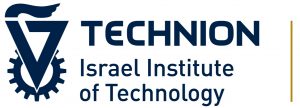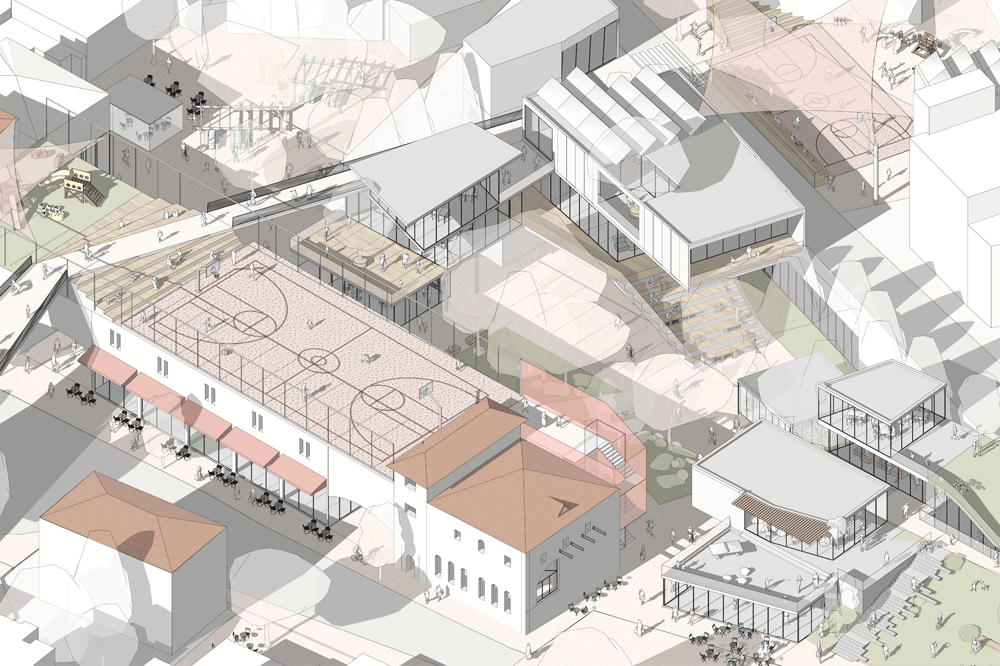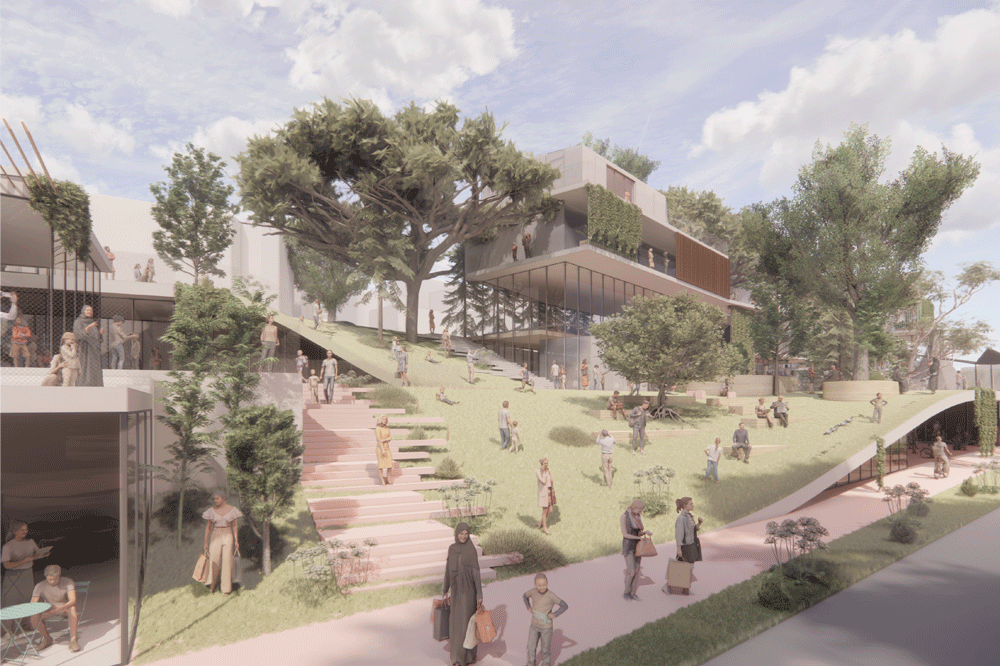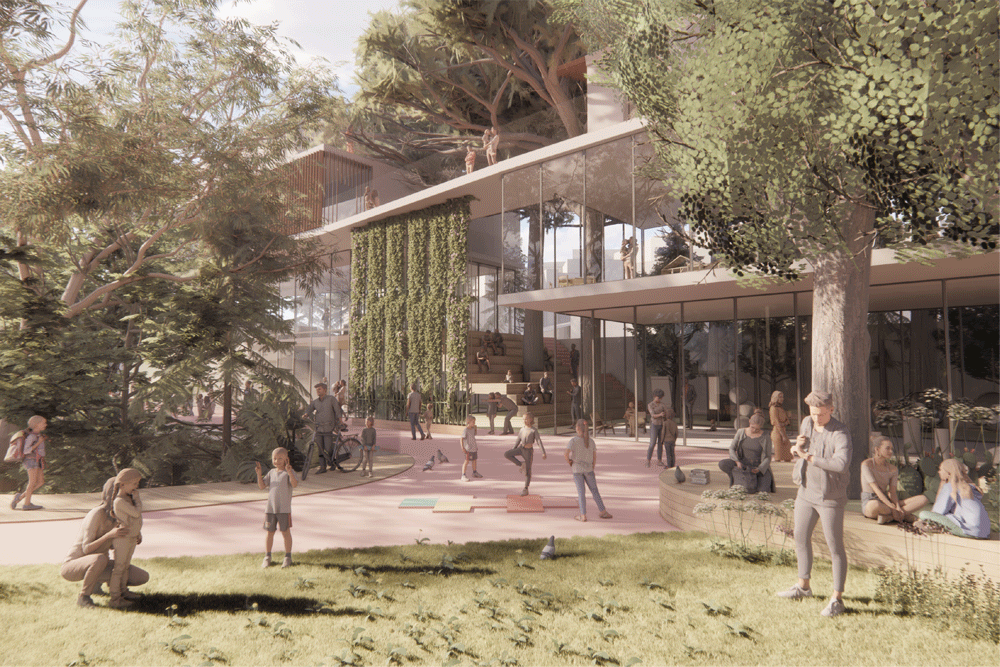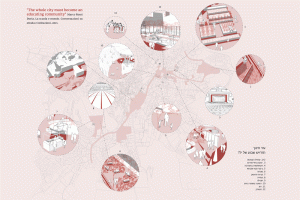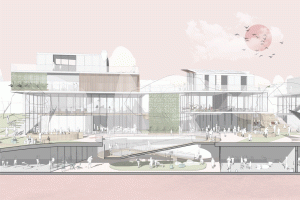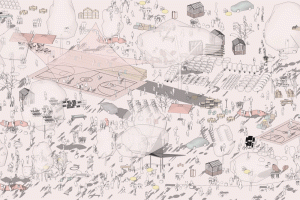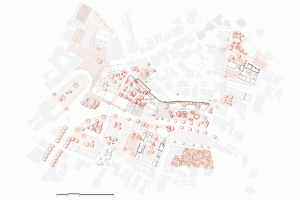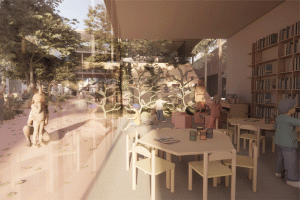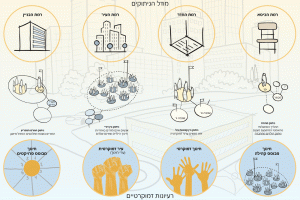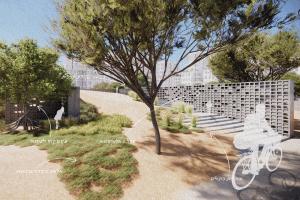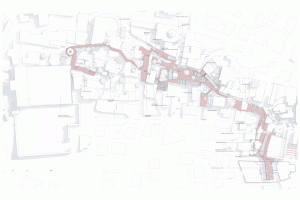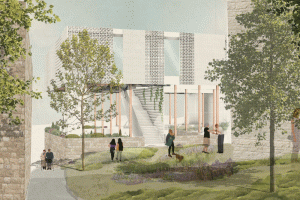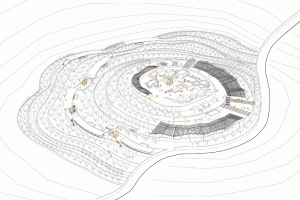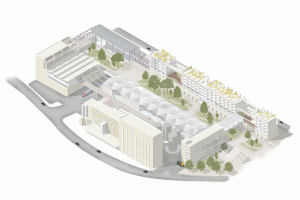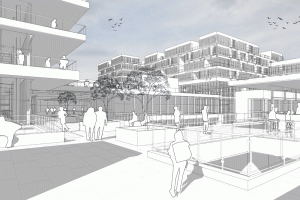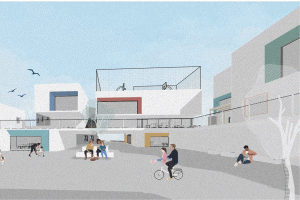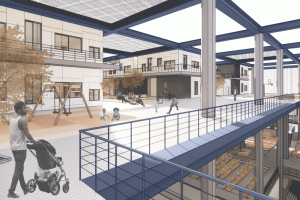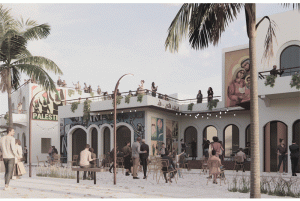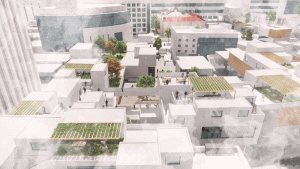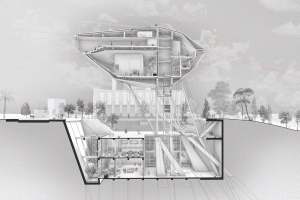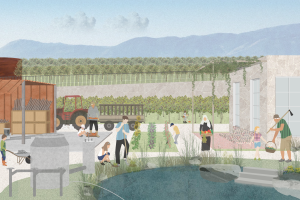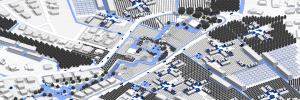EDU-SCAPE
The city of Nazareth has special status in terms of its religious, historical, and touristic importance. However, it suffers from several problems that affect the quality of life of residents. The project addresses two main problems: the first is related to urbanism, specifically a lack of public open spaces and increasing population density; the second pertains to education and learning methods used in the city’s schools. Although Nazareth has some open spaces, most of them are privately owned by churches, and they are fenced or surrounded by walls, which means they are largely inaccessible to wider society. Alongside this, the current education system does not use the outside environment, with lessons taking place only inside closed classrooms within school buildings, which cuts students off from the city. Indeed, there appears to be a commonality between these two problems—namely, a lack of public and open space.
The research question is as follows: How can the development of educational environments mitigate limitations regarding open and public urban space in Nazareth?
To address this question, the project reinvents the dialogue between schools and cities through re-planning of the city as one connected educational locale, where students can study informally anytime and anywhere. This involves delimiting a number of existing squares and defining them through the creation of new buildings, planning new public open spaces that increase urbanity and serve both schools and the city, and creating one system that connects them as an educational area that is integrated into the city.
